Motorcycle Therapy: The Michael Czysz Story

Michael Czysz copes with cancer the only way he knows how.
Michael Czysz has a reputation for bucking trends and marching to the beat of his own drum. After creating his own gas-powered superbike, then an electric version that lapped the 37-miles of the Isle of Man TT at an average speed over 100 mph, Czysz’s motorcycling career has seemingly been one of David trying to topple the OEM Goliath and beat the odds.
Today, however, Czysz is flying. Astride his Ducati Superleggera, number 211 of 500 (even when he accepts convention, he chooses the rare and slightly unconventional among them), he banks hard right into turn 9 at Portland International Raceway – his home track – knee on the deck, elbow not far behind. The thundering V-Twin is booming as he gets on the gas, the full Akrapovic exhaust system shouting the Ducati’s intent at a roaring 103 decibels, way over the track’s sound limit.
Nobody cares. Those at the trackday hosted by MotoCorsa (which was awarded the number one Ducati dealer in the U.S. later that night), staff and participants alike, are simply happy to see Czysz back on two wheels. He’s a little thinner now, and only has the stamina for a handful of laps, but he’s beaming and fast as ever. Still, there’s a sense of relief each time MC comes back from a session. While always a significant moment in time, it has a deeper meaning now. Repeated over the course of multiple trackdays Czysz has run with dear friend and MotoCorsa bossman, Arun Sharma, the act of seeing Michael return from battle (in this case, with his 200 hp Italian stallion) gives a sense of hope that he can find his way back from anything. But Michael Czysz’s biggest battle is far more intimidating than a Ducati Superleggera.
Michael Czysz is dying. Diagnosed with pleomorphic rhabdomyosarcoma (also known as anaplastic rhabdomyosarcoma), RMS affects skeletal muscle and is extremely rare in adults. “The death usually comes from the cancer metastasizing to your lungs, and at that point it just burdens your organs,” says Czysz. “Now I have this softball-sized tumor that’s pressing up really hard against the return blood vessel into my heart.”
Rude AwakeningCzysz discovered the news at a point when he was seemingly on top of the world. Nearly a decade ago, Czysz parlayed the wealth he’d accrued designing mansions for the likes of Cindy Crawford, Lenny Kravitz, and a number of A-list celebrities through his design firm, Architropolis, into his second love – motorcycles.
With the desire, and now the means, to go toe-to-toe with the world’s best, Czysz created MotoCzysz, his motorcycle company dedicated to building what he called a “real American superbike.” Yes, that’s a jab at Erik Buell. The result was the radical MotoCzysz C1, a complete ground-up design, powered by a petrol engine of his own design, built to take on the world. Unfortunately, constant rule changes in World Superbike and MotoGP shuttered his early attempts at racing and the project was eventually scrapped (stay tuned for a future article with more in-depth details on the MotoCzysz story).
From there, the designer-turned-anti-establishment-motorcyclist shifted his attention to the fast-growing electric motorcycle movement, “even though I hated –HATED– electric motorcycles at the time,” Czysz says. However, he embraced the fact electrics would play a part in the motorcycling landscape for years to come and rekindled his dream of taking on the world with his own creation.
Czysz eventually made history at the Isle of Man, winning the inaugural TT Zero electric motorcycle race in 2010 and then backed it up by winning the next three after that. Michael Rutter, aboard the MotoCzysz E1pc, was also the first to “break the ton” and record an average lap speed over 100 mph (104 mph, to be exact) in 2012. All on a motorcycle designed by Czysz himself. Things were going good. Then, in 2013, despite Mark Miller and Rutter again piloting the E1pc at the Isle, Michael Czysz was several thousand miles away. At home in Portland, fighting a battle much more formidable than the Mountain Course.
In 2011, Czysz came down with an intense sore throat. It wasn’t unusual for him to get sick, but this was weird. “I had the ability, when I knew there was a deadline – like the five-month Isle of Man deadline – I could work every single day for five months and never miss a day, never get sick. Never.” Then, like clockwork, the day the deadline was met, MC would fall ill. Says Czysz, “So, I came back [from the Isle of Man] and got sick enough I had to go to the doctor’s office, which is super rare. I didn’t have a good relationship with the doctor because I never got sick. So he didn’t really know me, I didn’t know him, he didn’t really know the deal. We just talked about it and he gave me antibiotics, which is normal. I took the antibiotics, two weeks later, I’m fine. I figured, of course; I’m in those planes, surrounded by people, of course I picked up something from them.”
To be safe, the doctor sent him to an ear, nose, and throat specialist who wanted Czysz to undergo an MRI. “They assured me it would be an open MRI,” says the severely claustrophobic Czysz, “but I got there and it wasn’t. They just lied. I just wasn’t mentally prepared for it that day. So I didn’t go.”
The following year, 2012, Czysz again fell ill after the TT was over. Only this time the sore throat was almost crippling. “During the [TT] awards ceremony, I got so overwhelmed I had to leave before Mark [Miller] and [Michael] Rutter could get their trophies,” he says. “I just couldn’t do it. I had to go back to my room and rest.” He eventually returned to the same doctor, was prescribed the same pills, but the sickness was stronger. The pills didn’t work. This time Czysz had no choice. He was getting an MRI.
The results actually came back encouraging. Doctors thought the growth in his throat was a cyst because of its symmetrical growth pattern, however after seeing a specialist at Oregon Health and Science University for a biopsy, the prognosis was much different. “He called me with the bad news, said it was a very rare form of cancer and a very fast growing cancer, and that I needed to get on the most aggressive treatments possible.”
To think, if only Czysz had gone in for an MRI the year before, doctors could have seen the tumor in time to dramatically increase his chances of survival. Instead, doctors were simply removing a tumor in his throat in order for him to breathe again. The cancer had already metastasized, and seemingly overnight Czysz’s condition was elevated to stage 4 cancer.
Since then, Czysz has had chemotherapy non-stop for the past year, and at his lowest weighed 130 lbs, 50 lbs. less than normal. “They loaded me with as many chemicals as they could to kill the tumor yet still keep me alive,” he said. “Eventually the doctors said, ‘this is as far as we can go. We have to stop and see what happens.’” It didn’t work. The tumor kept growing, doubling in size every three months. “That may not sound like a big deal,” says Czysz “but it means it goes from a pea to a walnut in three months, from walnut to tangerine, then tangerine to softball. That happens every quarter. Now, I have one metastasized tumor spreading to my lungs and that’s usually how you end up dying.”
In hindsight, Czysz recalls two instances which stick out as being warning signs things weren’t right. “The first was telling my wife Lisa after I came back from the Isle of Man that my tongue felt swollen and I was talking like Drew Barrymore. You know how she has that baby talk?” he laughs. The second came from a most unusual source. “I had this dog, this Great Dane, for about 10 years, and he was the most amazing dog. That dog would look at me right in my eyes and put his nose right up to my mouth, like he was checking me out and saying, ‘are you alright?’ I can’t beat myself up over it, but I kinda can because this is life or death stuff. This isn’t a ‘oh, I wish I invested in company A instead of company B,’ kind of mistake. This is ‘we can’t cure it now, but we probably could have then.’ Yeah, it’s fucked up, man. It’s been a year of me recognizing where I’m at, but you can’t change it.”
Where he’s at is a point in life where he can simply live in the moment. Before, Czysz would be designing the next iteration of the E1pc on his flight back from winning that year’s race. Now, he admits he would have taken the time to celebrate the victory. As we’re talking from the backyard of his beautiful waterfront bungalow in Portland, seemingly on cue an osprey lands on a tree branch above and Czysz’s attention shifts. He recognizes the bird, tells me it comes every day, and how it usually drops down to the porch to say hello. On this day, it simply flies away. “That guy is so funny,” he says.
Second, Czysz, ever the perfectionist, stopped sweating the details. “I just really strove for a lot of perfection, and it was self-inflicted perfection… but that’s hard on people.” On this day, the bike and gas can are loaded and filled on the way to the track, which is conveniently located less than 30 minutes from Czysz’s bungalow. Still, we arrived at the track as the first session was about to begin. That would have never happened before.
AcceptanceCzysz still juggles with the range of emotions associated with a life event like this. From a professional standpoint, the diagnosis meant the writing was on the wall for MotoCzysz. “That was sad because I know starting a motorcycle company is a struggle and is really hard, but I didn’t want to be a reason why it wasn’t going to be successful, and when you decide you’re going to start winding it down, which was the right decision, it’s like, you just wrote the death of your dream. So that was pretty tough.”
More importantly, his biggest sorrow will be missing his sons Enzo (17) and Max (15) mature into adulthood. Czysz is incredibly proud of his kids, tearing up as he admits, “I just don’t want to let them down.” The two boys are aware of their father’s condition, but MC equates his situation to his 96 year-old grandfather’s.
“He’s one of the best men in my life, and he always has been, but he has to go to bed with diapers. Now that’s not good enough, so he has to sleep on pads. I have to tell you, I have no interest in being him. Zero. So I tell my kids, I don’t want to be 96. I don’t want to die at 50 either. I’d like to die somewhere in the middle.” Ever the motorcyclist, Czysz, a huge Valentino Rossi fan, draws parallels to another MotoGP legend. He says, “It’s rare, but I’d rather be [one of] the Casey Stoners of the world, that step out at the peak of their life, than be in my grandfather’s position.”
Ironically, Cysz is paranoid about death. “Because, fuck, that’s forever. Forever. For eternity,” he says. “I don’t hold the same beliefs my grandparents do, who truly think they’re going to the pearly gates. I don’t believe that. After a while, the burden is too heavy, and I’ll end up not fighting as hard because I’ll just get tired of it and say, ‘well, that’ll be a good rest.’” The mental fatigue is starting to wear on Czysz, as he admitted he’s experiencing his lowest mental state so far. Physically he was at his worst during the constant rounds of radiation and chemo, when his hair and nails were falling out, he was eating and breathing through tubes, everything hurt and he couldn’t do anything about it. Still, he stayed motivated because he believed those steps would provide an answer. “I believed tomorrow would eventually be better than today,” he said.
“I’m probably getting close to my mental lowest now because I’m on this trajectory [hand motion downward], and I can’t get the up-tick,” Czysz continues. “We have a track record now, a year of scans, we’re seeing all this shit and there’s just no stopping it.”
Moto TherapyWhile he was bringing his business to a close, Czysz sold all his personal bikes during the liquidation process. “When I thought I couldn’t ride anymore, the desire left me 100 percent,” he says. “I then looked back and thought I should be totally happy. I had a great run, I spent a lot of time with dudes like Freddie Spencer, he was my personal coach – how many people can say that? I didn’t get hurt. I’ll take it. Perfect career. That was it. I was done.”
By chance, Arun Sharma came over for dinner, the first time the two had seen each other in three months. “That was the longest we hadn’t seen each other,” Czysz says. Sharma was blown away by his friend’s dramatic improvement in appearance. So much so that he got Czysz to consider a return to the track. “I didn’t want to actually,” Czysz says. “I didn’t want to be that slow guy at the track and have that juxtaposition to show how bad I am.” However, Arun got Czysz so convinced he figured he’d show up and give it a shot again.
Riding a borrowed Honda CBR600RR from dear friend, Shawn Roberti, it didn’t take long for Michael to make up his mind. “The second lap I touched my elbow down and I could see where I wanted to go,” Czysz said. “I thought, I can do this!” Despite all the medications and treatments being pumped through his body, nothing compared to old fashioned adrenaline. “I felt really good that day,” said Michael. “I could only do half a day, but when I was on that bike I felt almost like a normal dude again.”
From there the wheels were in motion. Czysz drew an instant attraction to the Ducati Superleggera, and he tag-teamed with Sharma to bring one home. “He wanted one but in the long term, and clearly I was looking for the short term, so it worked out perfectly.” The Superleggera provided Czysz with an other-worldly experience. It was fast, it was beautiful, but most of all, it allowed Michael Czysz to simply ride a motorcycle for fun. There was no pressure, no instructing, and no testing of experimental parts drawn up in his own office. He could finally turn his brain down a few percent and instead of worrying about prototype part failures, all he had to do was ride.
Then of course, with double the displacement of the Honda he rode previously, “I certainly didn’t feel the adrenaline pump from the 600 that I do from this [the Ducati Superleggera],” he says. “I mean, it’s scary fast. Today was a prime example, I was in the back of a group, then pulled out and passed like 10 people down the straight. Well, that’s fucking exciting, man!”
In talking to Czysz, it’s clear that rush of acceleration was all it took to lift his spirits. He could only run a handful of laps per session, and he looked tired and nauseous at the end of each stint, but the racetrack was his sanctuary. “I don’t have the strength to do anything anymore,” he says, “but I do have the strength to roll the throttle on and feel that thrust, and that feels powerful. That feels good.”
Czysz recalls the first trackday he rode just a week after being diagnosed with cancer. The storm of emotions had him considering cancelling his reservation, but he decided against it. With nothing more to lose, he credits this day at the track as “the single greatest trackday of my life. Bar none.” His inhibitions were free, released from having to maintain the small cushion in reserve he’d been so used to riding with. He felt more relaxed than ever on the bike, dropping two seconds off his personal best lap time. “It was a dramatic jump that day,” he says, “everything was so perfect. I slammed every apex and wheelied out of turns, leaned over. That’s what excites you. It was just amazing.”
Czysz continues, “And that was just from saying ‘So, I crash? What’s that going to do? It’s not going to hurt more than the cancer is hurting. It’s not going to shorten my life any. And if it does, what’s it going to shorten it by?’ That was an incredibly liberating experience.” An experience he credits as being one of the few positives to take away from his condition.
The MessageUltimately, Michael Czysz is going to die before his time. However, just because he’s accepted death doesn’t mean he has to stop living. And that’s where the motorcycle comes in. He makes mention of those who golf to bring them joy. Then references others who hike to see a canyon or river or peak they’ve never seen. “Still, none of those things compete with a motorcycle,” he says.
Pleomorphic rhabdomyosarcoma is an extremely rare disease. According to Sarcomahelp.org, there have been only 400 reported cases of adult RMS throughout the United States and Europe in the past 20 years. Considering this, Czysz doesn’t see much of a point trying to raise much awareness for it. Instead, he hopes to motivate others in similar positions to keep living.
“I’m not in great physical shape anymore,” he says, “but nowadays I feel more normal on the bike than I do even walking up stairs. It’s amazing we can get such power by just twisting your right hand, and as long as you can do that, as long as you can still get that thrill, you’re living.”

Troy's been riding motorcycles and writing about them since 2006, getting his start at Rider Magazine. From there, he moved to Sport Rider Magazine before finally landing at Motorcycle.com in 2011. A lifelong gearhead who didn't fully immerse himself in motorcycles until his teenage years, Troy's interests have always been in technology, performance, and going fast. Naturally, racing was the perfect avenue to combine all three. Troy has been racing nearly as long as he's been riding and has competed at the AMA national level. He's also won multiple club races throughout the country, culminating in a Utah Sport Bike Association championship in 2011. He has been invited as a guest instructor for the Yamaha Champions Riding School, and when he's not out riding, he's either wrenching on bikes or watching MotoGP.
More by Troy Siahaan



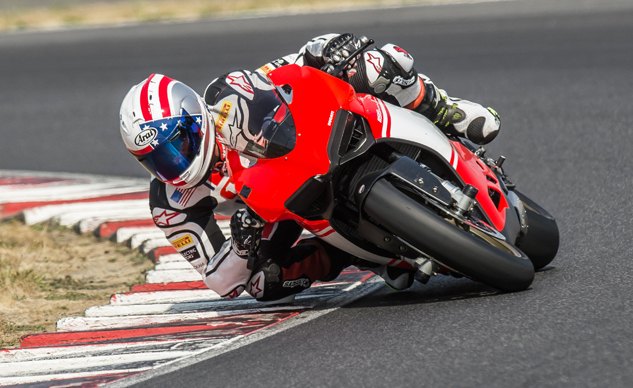
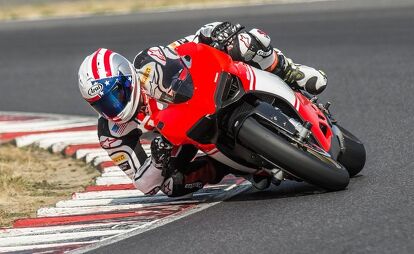





































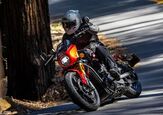
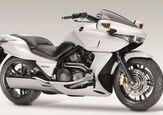
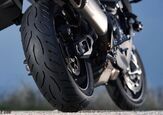
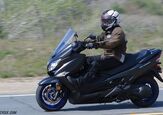
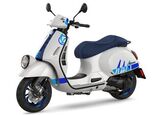
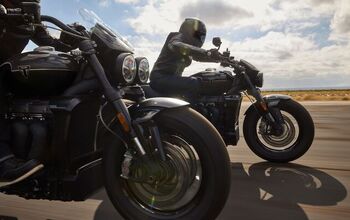
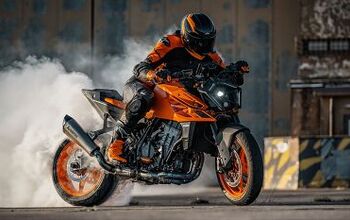
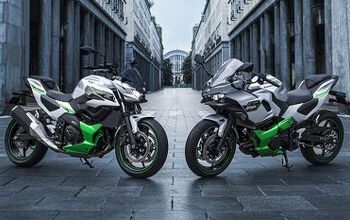
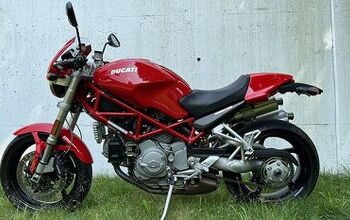
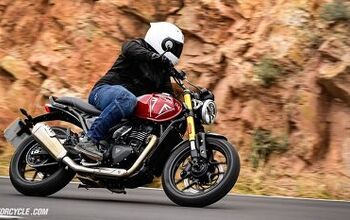
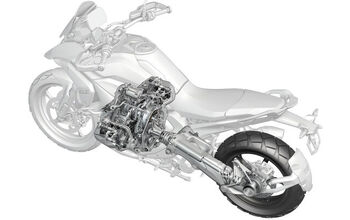
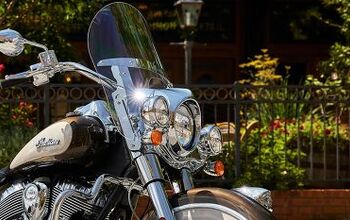
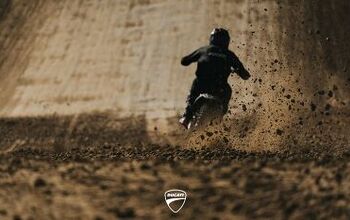

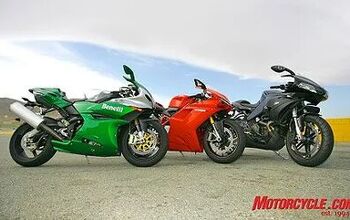
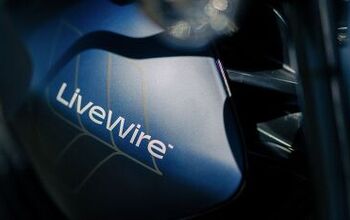
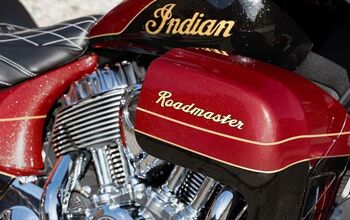
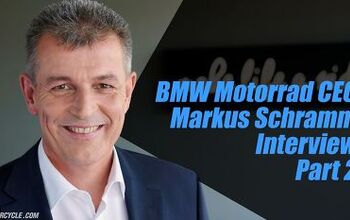
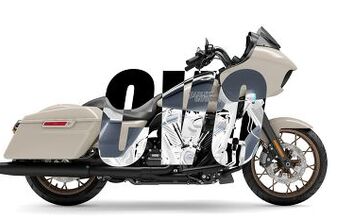
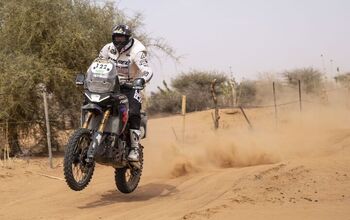

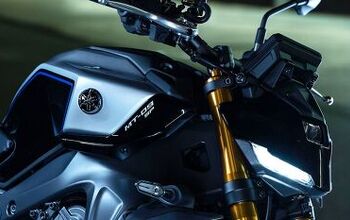
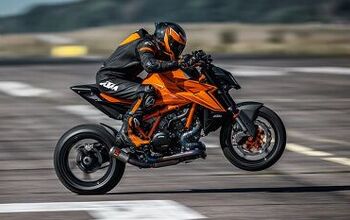
Comments
Join the conversation
Thank you Troy Siahaan for writing such a wonderful story. Michael Czysz was an inspiration for me back in 2006 and is now an inspiration beyond words. As am i'm currently working through chemotherapy for a grade II astrocytoma brain tumor. This sentence brought smiles to my face in hope and Joy, "is going to die before his time. However, just because he’s accepted death doesn’t mean he has to stop living." I am proud to have framed a poster that I bought from Motoczysz a decade ago and will gladly donate it to any organization, family member, or community that can use it to create a historic collection/gallery that Michael deserves.
Aloha
I learned about and was fascinated by him years ago... I was upset when the rules were changed just as he was getting everything geared up... they were never going to let him beat the MaJOR manufacturers... well they were going to throw every roadblock possible in the way. Really innovative designs which were ahead of the rest.